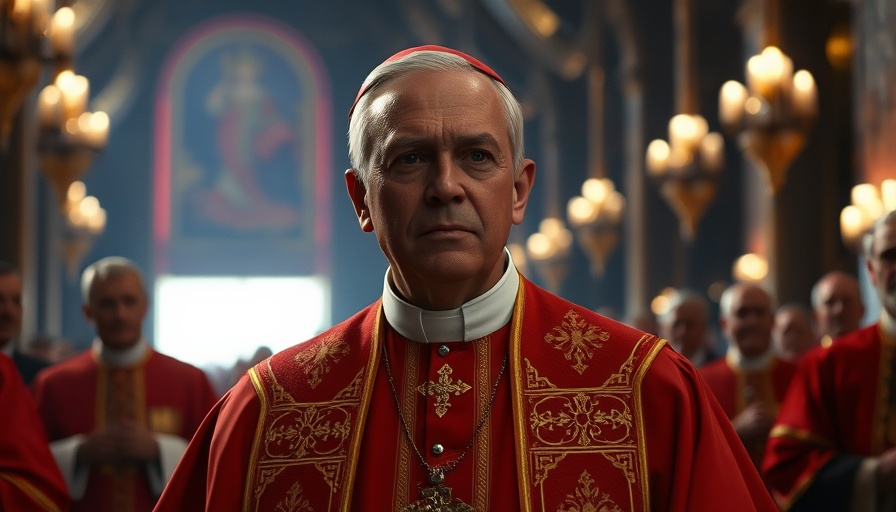
Meet Pope Leo XIV: A New Leadership Era for the Catholic Church
In a historic moment for the Catholic Church, Robert Prevost has been elected as the first American to become pope, taking the name Leo XIV. Crowds gathered in St. Peter's Square erupted in cheers of "Viva il Papa!" upon hearing the announcement, underscoring the excitement surrounding this new chapter for the Church.
Background and Journey of Pope Leo XIV
Born in Chicago in 1955, Prevost's journey to the papacy has been deeply influenced by his work in Latin America, where he spent a significant part of his life as a missionary in Peru. His dedication to serving marginalized communities has shaped his identity as a leader in the Church. Prevost was not just a cardinal but took on multiple roles over the years, including that of a bishop and a parish pastor, which has endowed him with unique insights into the lives of the faithful.
Aligning with Francis: The Continuity of Reform
Pope Leo XIV is regarded as a proponent of continuity with Pope Francis’ reforms, particularly concerning issues like migration, poverty, and environmental stewardship. His former roommate, Reverend John Lydon, portrays Prevost as approachable and empathetic, highlighting traits that reflect the core values of the Church under Francis's papacy.
Anticipated Directions Under His Leadership
What lies ahead for the Catholic Church under Pope Leo XIV? Many expect him to reinforce the progressive agenda begun by his predecessor. With 80% of the cardinals present at the conclave having been appointed by Francis, this election signals a desire to sustain a path that favors inclusivity and compassion in addressing modern-day issues.
The Significance of This Moment
The election of Pope Leo XIV is not just significant for American Catholics; it resonates on a global scale, representing a shift in the Church's demographics and leadership style. As the devout and followers look toward the future, they do so under the hopeful gaze of a leader who has dedicated his life to serving others and addressing their needs.
While the duties ahead are daunting, Pope Leo XIV’s background as a pastor and his deep understanding of social justice issues position him uniquely to lead the Church during challenging times. As he embarks on his papacy, the world will be watching closely to see how he navigates the balance between tradition and necessary reform.
 Add Row
Add Row  Add Element
Add Element 



Write A Comment